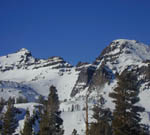
| Home Website Corruption Updates Database Archives Link Clusters Why Help Contact |
|||
Corruption Disasters china's us backed police state
Our Lost Rights
Our Dictators
Bush&congress must be Impeached and replaced
Serious threats to our rights reporter subpoenaed for exposing bush CIA crimes, nyt, 2-1-08 Harmon's "Homegrown Terror" resolution is an extreme threat to our rights, 4-19-07
American Political Corruption affects the Whole World
our corruption has changed how nature appears in front of us,
and behind us
As an individual, an individual human, you are designed to reflect. The reality you reflect defines the center and extent of your life. |
recent pages: 166 165 164 163 162 161 160 159 158 157 156 155 154 153 152 | ||
Make Real Political Change. Join the NextRevolution.Org create community based on honest democracy |
|||
| first posting: Monday, February 2, 2009 4:50 pm, pst | |||
CORRUPTION UPDATES 182 first posted: February 2, 2009, Draft edition Previous Page: Page 181 All Archives Next page: Page 183
Contact Us: Committeefordemocracy.org 1) The Articles linked below were Abstracted from the sources cited. After the abstract there's analysis and commentary, links to related articles, and a link to the database with suggested search terms. Water watchers cast a wary eyeBy Matt Weiser mweiser@sacbee.com Published: Monday, Feb. 02, 2009 | Page 16A http://www.sacbee.com/capitolandcalifornia/story/1591007-p2.html Water experts are having a hard time finding the right words to describe what lies ahead, after recording a dismally dry January in California. "Scary," "grim," and possible "conservation mandates" are offered up. Yet it's easy for the experts to sound out a clear warning: This may become, simply, the worst drought California has ever seen. "Our worst fears appear to be materializing," said Wendy Martin, drought coordinator at the state Department of Water Resources. "It's going to be a huge challenge." The bottom line, water officials said, is that right now, everyone must start using less water. The public can expect higher water bills and fines if they don't, because the alternative is a real water shortage – one that is threatening tens of thousands of Valley jobs. "It's pretty scary," said Tim Quinn, executive director of the Association of California Water Agencies, who has more than three decades in the water-supply business. "The public needs to tighten their belts. You have to rearrange all the molecules in your brain to think about using water differently." What worries the water gurus is not just a likelihood that 2009 may be a third dry year in a row, but what appears to be the state's dramatically reduced flexibility to respond. Among the reasons: • Sacramento-San Joaquin Delta is in an ecological crisis. It's the funnel for most of California's precipitation, but its ability to move water from north to south is compromised by the need to keep Delta fish from going extinct. • California has added 10 million people since the last big drought in 1991, substantially boosting demand on the available supply. • Farmers have shifted hundreds of thousands of acres to permanent crops such as fruit, nuts and grapes, which cannot be fallowed in droughts like the row crops they replaced. Thousands of acres of row crops already have been fallowed, and more will follow. "The situation is very grim for all farmers," said Sarah Woolf, spokeswoman for the San Joaquin Valley's giant Westlands Water District, which warned customers they may not get any water this year. "There simply will be drastic fallowing and, in all likelihood, significant impacts that result in some businesses not making it through." Richard Howitt, professor of resource economics at UC Davis, last week offered sobering numbers to the state Board of Food and Agriculture. Using computer economic models and DWR water data, Howitt estimates 40,000 jobs will be lost, along with $1.15 billion in income. But this is just the first splash of trouble, because Howitt's estimate applies only to areas of the Central Valley south of the Delta, and only in the farm sector. It also relies upon DWR's most recent official estimate that its water contractors will get only 15 percent of normal deliveries. But a DWR official told The Bee last week that the next forecast, expected by mid-February, will almost certainly promise even less water. All these factors mean the statewide economic impacts will increase substantially from current estimates, Howitt said. He expects this drought will be worse than those in 1977 and 1991, the most severe in modern times. "What's eye-popping to me is these job losses," Howitt said. "If you say you're losing 40,000 jobs in small Valley towns where the people who are losing their jobs are least able to do anything about it, you're talking about real costs to people's living." January is one of the months water officials had hoped would yield enough water to pull the state out of a two-year dry spell. But it did the opposite: January, often the wettest month of the year in California, was in 2009 one of the driest on record. The statewide snowpack, in surveys conducted Thursday, proved to be just 61 percent of average. It was worse, at 49 percent, in the Northern Sierra, home to some of the state's most important reservoirs. Rainfall totals mirror the bad news. Sacramento in January saw just 1.5 inches of rain, against the historical average of 4.2 inches, according to the National Weather Service. Redding fared even worse, recording only 0.93 of an inch compared with the January average of 6.5 inches. Water agencies throughout the state are scrambling to adopt conservation mandates – largely because many customers have so far failed to cut back enough on their use. The East Bay Municipal Utility District, for instance, ordered 15 percent mandatory conservation in May. Customers achieved 10 percent. The city of Folsom last year adopted the Sacramento region's strictest measures: a Stage 2 drought alert with a voluntary 20 percent conservation target. Utilities Director Ken Payne said customers achieved that goal, but consumption this winter soared above normal. Within weeks it is likely to move to a Stage 3 warning, which will make the 20 percent target mandatory and limit outdoor watering to just two days per week. The city gets its water from Folsom Lake, which today stands at 25 percent of capacity. If the water level drops another 40 feet, Payne said, the city could have trouble drawing water from its lake intake. The city of Sacramento does not expect supply problems because it has ample water rights in both the Sacramento and American rivers. But it has come under growing criticism in recent years for its gluttony. Sacramento's per capita water use, at 278 gallons per day, is double the state average. The city was forced by a 2004 state law to install water meters at all customer accounts. But it doesn't plan to do so any sooner than a 2025 deadline. Critics note an ingrained attitude among many Sacramentans, who believe they can use all the water they want because it simply flows back into local rivers. That perception is false, according to state data. In the Sacramento Valley, an average of 44 percent of water used for urban purposes is lost to evaporation and plant growth, according to DWR research. This means that in an average year, 312,000 acre-feet of water used in the region doesn't return to rivers. That's enough to serve 600,000 households for a year. Sacramento has never ordered water rationing in its 160-year history. But Utilities Department spokeswoman Jessica Hess said that on Feb. 24, the City Council will consider such a mandate, along with stronger enforcement against water waste. "It is not just about us," Hess said in an e-mail. "In times like these, it is important to consider the greater good of the state and region." water essays Impending Water Crisis: We Don't have a Water Crisis, or an Energy Crisis, We Have Too Many People, alex wierbinski, june 7, 2006 End of the Road for Ocean Life in Sight: 50 more years of Human Destruction if Fishing is only human Assault on Oceans, alex wierbinski, 11-2-06 CLIMATE ALREADY CHANGED, NO ONE NOTICED, alex wierbinski, march, 07
Climate Change has already happened: Glad the Scientists Took their Heads out of their Asses, opened the Window, and Looked outside, alex wierbinski, may, '07
Feel Good Environmental Protections Worthless in face of Massive Demographic Growth in California, alex wierbinski, june 26, 07 Perata Advances Great Water Grab to fuel further Massive Expansion of Southern California, Alex Wierbinski, Berkeley, Ca., July 24, 2007
We Let Death in the Front Door, Alex Wierbinski, Berkeley, Ca., July 31, 2007
"It's Always been like this" fails as an Argument, alex wierbinski, aug 27, 07 California has Developed Beyond ALL of our Natural and Social Resources: Stop all Growth Now! Alex Wierbinski, Berkeley, Ca., August 29, 2007
The Seasons Have Changed: Deadly Heat Normal in New American Summer Weather Pattern, Alex Wierbinski, Berkeley, Ca., August 29, 2007
Corporate Dems, Crimigrants, and Hippies: growing us to environmental disaster while feeding the beast of irresponsible corporate growth/consumption, alex wierbinski, nov, 07 Boxer's Liar's game: Preserve growth, maintain pollution, while looking "Green," Alex Wierbinski, Berkeley, Ca., December 5, 2007
Freak Tornadoes: Global warming Kills at least 50, Alex Wierbinski, Berkeley, Ca., February 6, 2008
Our water, our fish, and our rights are gone What else will you sacrifice to serve your greed and ego? Alex Wierbinski, Berkeley, Ca., April, 2008
Impending Famine Open your Mind, and see the burning planet only you can prevent global crisping, Alex Wierbinski, Berkeley, Ca., April 6, 2008
Be very worried, alex wierbinski, may, '08
Population: The Environmental Meltdown: murder 1 against nature, alex wierbinski, august 15, 08
news on this page
topic 1] 2] 3] 4] 5] 6] 7] 8] 9] 10]
|
|||


